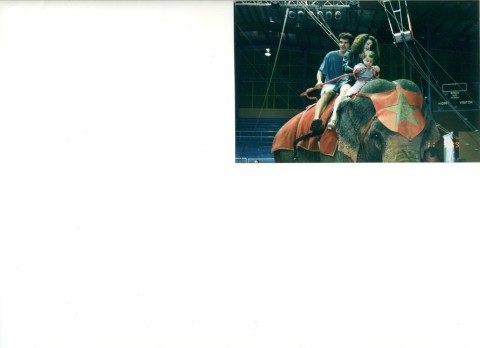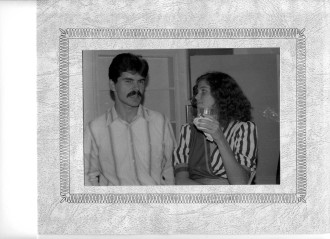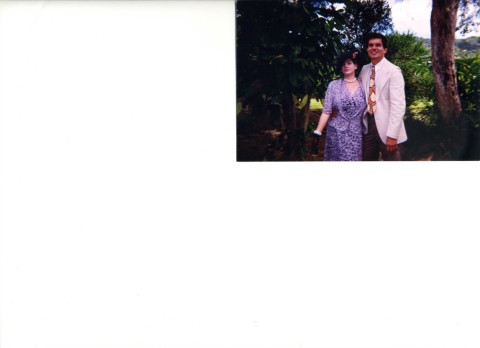
Perry-Savage-Salem (part 1)
img178.jpg
JPG image [2.2 MB]
<< New text box >>
Perry-Savage-Salem
Here are "brief" reviews of two books and a video documentary. It's nothing so in depth as my blow-by-blow "100 People Who Are Screwing Up America." But, I try to treat what's salient
about each, from my perspective. And, I leave you to delve into them more, pursuant to your individual taste and predilection.
1) Joe Perry - "Rocks" (October, 2014): 394 pages, up to index
"For once in the existence of Aerosmith, the Elephant in the room, was a real one." (Joe Perry, paraphrased from "Rocks", book)
a. Scope
This auto-biography does not completely explain the etymology of "Honkin' On Bobo" nor "Pump". I still don't know what those titles mean. But, Joe leaves virtually no other stone
unturned. The book is a fabulous insight into how he created so much great music and is remarkable for its candor, even in sordid episodes.
He says that it's a documentation of how he got to where he is today. So be it. Sometimes authors claim as intent, to leave a legacy for their posterity, e.g. tennis star Pete Sampras' "A
Champion's Mind".
Several other bios which occur to me are Letterman's Paul Shaffer's (year 2009, with David Ritz), Frank Zappa's (1989), Tommy James' (2010), or even Raquel Welch's (2010). I got all these at
Borders Books when it went belly up. There was inventory to be gotten at as much as 90% discount. What an economy we live in!
As for Perry (JP) and Savage, these hard-covers are courtesy of the local, public library. With renewals, you can hold onto them for a month and a half. If that's not enough time to
digest the contents, then the explanation is simply that one was not interested.
b. Money problems
So, Joe discloses that he was so broke in 1980, he couldn't afford to fork up $8,000 for a '59 Les Paul guitar which had wandered away from him, out into the market. Astounding! His band,
Aerosmith, was at the top of the heap during the 70's, in radio play, records sold, and tour receipts. Lots of money was changing hands, connected with their business.
Notwithstanding, heck, many of my less famous, frugal friends could have lent him that. What happened? Joe answers all in minute detail.
The axe went missing when Perry had to hock it to make ends meet. Happy ending: Guns 'N Roses' Slash, gifted it to him on his birthday, happening, coincidentally, right before "9-11".
Caught up in the middle was Joe's ex, the 1st wife, who had misappropriated many of his prized possessions as they went thru a bitter parting of the ways. Re-connecting with the chattels was
hit and miss, depending upon how traceable they were, and, if seller and buyer were able to reach agreement about monetary worth. Joe got wind of the guitar item from cohort, Brad Whitford.
c. Philosophy
In the JP values, scheme of things, how did he keep it together during all the setbacks he's undergone thru the years? Well, dedication to his craft, music making, is the cornerstone holding up
that entire edifice.
Another pragmatic, character trait about Joe is that he moves on. For better or worse, what was, panned out as it did. As time progresses, his tendency has always been to gather up the
pieces and move on to what comes next. That is, second guessing himself, ruminating about what might have been, trying to re-engineer the past, no more than nominally figure into how he goes
about life.
d. Career saviors
Even when Aerosmith was going down the tubes, he had his Joe Perry Project band as vehicle to continue writing, recording, and gigging. Lawyer Bob Casper was an agent who tided Joe over with
thousands of dollars in money, when the guitarist was down to his last funds, during one particularly dire chapter in the Project's travels.
There was also a certain Tim Collins, imminent svengali, who entered into his life. Collins brought accounting expertise, wide-ranging support, management savvy, and an ample vision for Joe's
professional future.
But, Collins' stewardship of Joe then Aerosmith, --- 12 years duration --- at its apogee for the "Pump"/ "Get A Grip" segment of their career was, in fact, quite the roller coaster ride. The
big plus was that he cleaned them up and made them born again, marketable, to the corporate, music moguls. The down side is that the band members, justifieably, came to feel themselves
supremely manipulated.
Germaine to the dynamic of the Collins-Aerosmith relationship, JP feels compelled to include the definition of "cult", to describe how their lives felt, then. [It is] "an insular sect built
around the veneration of a person or belief where outside criticism cannot be tolerated."
The five band members had inadvertently come to embrace that mentality. It was anything but pleasant. But, how to escape? And, to what?
e. Origins
Joe's 'partner --- they used to be called the "toxic twins", after all --- in crime', Steven Tyler, is another crucial element in his career. Steve is the "older brother", prickly at times,
even "evil and cruel", and also, very talented. He performed as a singing drummer, pre-Aerosmith, before they recruited Joey Kramer.
Unlike Joe, Steve is from a musical background with grandpa and relatives accomplished, professional musicians, and Steve's father a real estate investor and accomplished pianist. Steve started
out early in bands, just like Joe. Eventually, they connected up in Boston.
Ancestry is frequently an interesting topic. Here is no exception. Tyler's name stems from Tallarico, which Joe's songwriting partner changed for show biz. Italian?
Joe's forebearers' last name, originally, was "Pereira". Then his grandpa Americanized it. Joe's father's progenitors hail from Portugal. His mother's are from Naples, Italy.
Joe's religious touchstone in his youth was Catholicism. He talks about its guilt trip.
I know what he means. Some Protestant friends of mine are amazed by the concept of "original sin". Aren't all babies born tabula rasa, a clean slate?
f. My Concert Experience
So, let me tell you that I am one of those fans who, besides possessing Aerosmith recordings, has actually attended one of their concerts. Let me reminisce.
The place was at the I.S.U. Field House, Bloomington-Normal, Illinois, the October after the release of "Toys In The Attic" and before "Rocks". The venue's spectator capacity was five thousand
people. Tickets went for about $7, back then.
The emcee came on the P.A. system, after the exit of the warm-up band, to announce: "Here they are. The boys from Boston!" Both bands of the concert event performed, each for about
45 minutes.
Steve Tyler (ST) took the stage with the band, mic stand wrapped up in a furled, streamer/flag-type remnant. In a virtually unique departure from script that evening, he said to us, "Oh, it is
so great to be back to normal!" That's vintage Tyler with his word play, oft-times ribald: Lick and a Promise, Lord of the Thighs, Adam's Apple, kiss your past good-bye, etc., etc.
The local newspaper advertised pre-event promotion. It sounded so much like how Joe Perry talks. "We play kick-ass music!" Cf. page 66, ¶3.
It's the only concert I've ever been to where macho persona manifested itself in this tough way. Steve Tyler expectorated, spit, upon the stage as he pranced about during the songs, as if to
punctuate some epithet or emphasize some lyric.
Now, I can just hear some wag comment: "That's entertainment!" ST has said that a pedometer, back in the day, clocked him at traversing four miles distance, during the presentation of an
average, Aerosmith concert.
Electrical, convective fans were in evidence upon their platform, a very good idea to counteract the heat of the venue and the radiation from the lights. [They were] Such as those one might see
at church, strategically located, four or five, standing six or seven feet tall, chrome plated, with blades of a diameter of three or four feet, protected against, by wire cage.
The music was canned from the albums. You might as well have been playing a tape of what came from their studio output. But, that did not alter that you were witnessing and participating
in their live, in-person presentation. There they were, the same musicians who generated all those catchy, hook-laden tunes you craved to hear.
Aerosmith inspired the audience beyond the ordinary. During some songs, a handful of disparate, diverse, male audience members would spontaneously leave their seats to approach the stage.
Then they mimicked and mimed Perry, Whitford, and Hamilton. These fans had gotten up to play "air guitar".
There the fanatics stood and fancy-maneuvered, identifying with and imitating their guitar heroes. All the while they manifested an ecstatic bliss and transcendence. Thus they melded with
the music, going a step beyond what the rest of us spectators were experiencing.
g. Album Aficionado
I recall premiering the "Toys" LP during the summer after its release. There was a group of about eight of us, guys and girls, in one of our dorm rooms at Washington University, Saint
Louis. I was so enthralled with the band that I purchased the album, even though I had no stereo handy upon which to play it. So a colleague student obliged by lending his. JBL,
three-way speakers were the acoustic output. Quite nice!
"Let's hear what Mark has gotten." We listened thru to all nine cuts, twice. Uncle Salty seemed to be an instant pleaser. You could detect that everyone was impressed by the album's
production.
One very astute comment was that the LP lacked range. I think that's very much on point.
It was not like Led Zep where you could hear some acoustic change of pace in, Babe I'm Gonna Leave You, or Going to California. Aerosmith was one, hammer-sledge pound after the next: plugged-in, electric, heavy metal, non-stop, start to finish.
h. Decibels Recommendation
Deafening was their music, live! Too much so, ST has regularly complained to JP and co.
Steve's got that right. It's the first concert and last, where I went with ears unprotected, too close to the speakers, so that I began to hear the output into my brain, already during the
event, distorted. After that episode, I walked around for two days, ears ringing.
Never again! Maybe Beethoven had the talent to turn out great music, even after having lost his auditory perception. Imagine, in a musician! But, regardless,...
And no, thank-you! I prefer to be able to utilize all that God has given me during the duration of my sojourn here.
Now, to rehash the point, Joe declares as to "volume,...played too loudly", "we never got any complaints from the fans." Page 160, ¶3. Well, I beg to differ!
That is, should it please the much-esteemed, guitar gunslinger, hereby, he may take constructive notice that yours truly also, submits kindred petition. I mightily concur in ST's provoked
sentiment. Or, as an evanescent, band leader of Joe's once famously penned: "You gotta turn that damn thing down!" Alice Cooper, "Teenage Lament '74".
Perry says that these days, the vocalist has available ear monitors, which filter out much of the band output, so that he/she can hear his/her own enunciation, more clearly, and less
"camouflaged". Thereby, is protected both the singer's own hearing, and, the larynx, as unnecessary screaming is avoided.
i. More Concert Reminiscences
Parenthetically, let me add that for that evening in Normal, Illinois, the warm-up act was none other than the "motor city madman". Yes, Ted Nugent and band were on hand, sharing with us the
cuts from his then recently released, "Stranglehold" album.
I was just as impressed by these guys. In particular, Ted and the drummer demonstrated consummate, technical, musical prowess. Also, I still recall the rhythm guitarist, Derek St. Holmes,
and the adrogynous bass player. Quite the spectacle it was, even if Ted was devoid of the other antics we see in his current presentations, including over-the-top, hunting allusions and
political diatribe.
Re-visiting "decibels", let me add this. Maybe it was Ted who sent me walking around with swollen eardrums. [Was] My own fault, in a way.
At Normal, it was general seating. If you got there first, you had your pick where to sit. So, early bird was I, and, got up-front, practically underneath one of the black box,
"armoire"-sized speakers, towards stage left. That was for the first half.
I was so close, it was as if Ted & crew were at the opposite corner of the living room, in my house! Then, once the songs started, I came to realize the error of my ways.
Understandably, when I had the opportunity to change situation during the intermission before the next act, I did so.
I moved ten or fifteen rows back, and more to the center, in hopes of recuperating my sonic sensibilities. Aerosmith, thus, was made ever so much more capable of being endured, and enjoyed.
Their "noise", output level may have been just as high, but at least I was no longer the captive fly on the wall, stuck in the same, "small" room. Or rather, no longer was I the confined fly crawling about the surface of the woofer speakers, as they vibrated and pistoned, to hurl seismic-amplitude tremors at the audience.
j. Technical Tips
For the musicians out there reading this, Joe offers these tid-bits. He likes the shorter scale (less than 25-1/2 inch fretboard) guitars when he wants percussive effect.
He occasionally uses alternate tunings which musicians invent ad hoc, for the reason that suits them. JP's instrumental outro to "No More, No More" is one example.
Alternate tunings are component in many of the songs the reader is famliar with. C, S, and N's "Suite: Judy Blue Eyes" utilizes an E-anchored tuning. Beatles' "Dear Prudence" is
likewise, "altered".
Led Zep's "Rain Song" is quite beautiful. I can imagine Page hunting around for convenient fingerings on this tuning, encountering multiple progressions, then stringing them together into a
coherent composition.
Rolling Stones went thru a G-tuning phase. Much of the Exile On Main Street album utilizes it. "Brown Sugar" greatly lends itself to this tuning, where the same fingering geometry, can be
made to slide up and down the fretboard neck, during the song's intro.
Joni Mitchell is another artist famous for her ubiquitous usage of alternate, guitar tunings. Leo Kottke is still another, a virtuoso, who recurs to this device for added inspiration.
JP proclaims that a successful album, i.e. commercial, can be engineered in one's own living room. Page 268, ¶ 1. How reassuring! And to be said by one who knows whereof he
speaks. He mentions the use of the computer software, Pro Tools.
He is also big on the use of pedals. I remember from the above-mentioned concert, Joe performing the Tom Hamilton song, "Sweet Emotion," complete with talk box, much in vogue then. For
example, in contemporary hits of the era, Peter Frampton used the same device on, "Show Me the Way", and, "Do You Feel Like We Do?"
.
Thanks to pedals, can be tweaked one's tone into an immense panoply of permutations. What started off in a big way with Jimi Hendrix' fuzz face, uni-vibe, and wah pedal, has morphed into an
ever growing assortment of options for the current-day guitarist.
k. Animating the Muse to Visit
As for song creation, Joe includes how they have brought in guest writers to catalyze the process, and whom they look to as their "George Martin". In particular, Beatles scholar Mark Hudson, as
extroverted as Tyler, has helped write various Aerosmith songs. For example, check out "The Farm".
And, Jack Douglas has been their savant producer, intermittently, since the early days. "Toys,..." is one of his many, extremely successful outings with the boys.
"All roads lead to Rome." In other words, there are various and sundry ways to create new songs.
For example, the chord progression to "Don't Get Mad, Get Even", came to Joe this way. He put a song from their previous album, "Rag Doll", on the turntable, played in a tricky way. He
pushed the reverse button, listened, and thereupon, the muse seized him. Page 255, ¶3.
l. Personal encounters
Of course a bio includes the personal. So, JP talks about the de facto "babe magnet" that he has been, so much so, that even ST experienced pangs of jealousy.
At same time, before getting into what's in-between, the happy ending is pictorially displayed inside the covers of the hard-back edition. What a great family JP has today, patriarch of five
sons, in a hunting lodge type home which recalls the formative years of his youth. He has been very settled and happy with his present-day mate, Billie, for a good generation of time.
The second, current wife, he first met thru a photo of her in a catalog of models. Interestingly, that's somewhat how actress Rita Moreno came to actor Marlon Brando's attention, back in the
day. Once those two met, what an incendiary romance that developed into!
Now, The Joe Perry Project had been casting a music video to promote a song ("Black Velvet Pants"), and this was another step in the process. Things just progressed from there once Joe and
Billie got to know one another.
JP talks about the unholy trinity of "Sex, Drugs, and Rock-N-Roll". The third element kicked in around the age of 13, then the second perhaps a few years later, and finally the first, in full
and ample bloom, with his getting to know Brit, Judy Carne. That affair completed the circuit.
Judy, many know as the "sock-it-to-me" girl from Rowan and Martin's Laugh-In. Also, she happens to be an ex-wife of actor Burt Reynolds.
Joe relates their relationship as a male, teen fantasy, fully realized in all its possibilities. Decadent would be one adjective to describe it. Hedonistic, another.
m. End Credits
To close this review, let me gloss over the following. Simon and Schuster publishers did a great production. The index is very comprehensive and useful. Every JP photo --- there are
well over a hundred (100+), super snapshots --- tells a story.
David Ritz is a great writing partner; the prose is very good. Actor-musician Johnny Depp was instrumental in providing an L.A. base where Joe could focus to churn out this tome.
Joe includes "guitar tech inside info", very illuminating to any musician. He also appends a discography including bootleg, YouTube material, an unusual feature and most welcome.
n. How Joe Self-Actualized
The first 50 pages are so instructive. Joe explains quite clearly how a kid from a non-musical background, except for the great-uncle who played Portuguese ukulele, turned into one of the best
and well-known musicians, of the 20th century and now.
I still don't get what's so primal and integral about his long-haired rebellion that got him dropping out of high school to work in his dad's factory. He insinuates that "the look" was appended
to his fixation on music.
But, I do get how he recognized and embraced his ardor for making musical conversation in a band; with that fascinating, "dangerous" instrument, the guitar, of which, he fell into a life-long
love.
(First of three parts)
{ posted 29 January 2015 }
<< New text box >>
Contact
Mark Drobnick
Waukegan, Illinois USA
Campaign News
As an active campaigner, I like to converse with my constituents in person as much as possible. Check out our news page to find a campaign stop near you.



